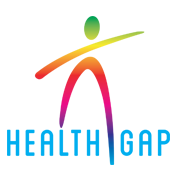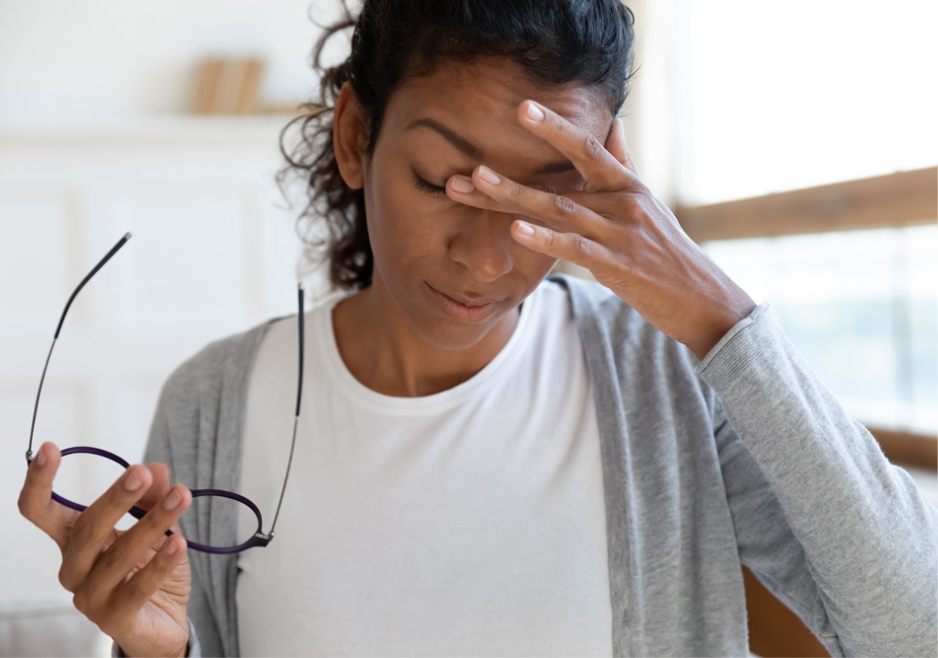I HAVE TESTED POSITIVE FOR COVID-19, NOW WHAT?
If you receive a positive diagnosis for COVID-19, you may be surprised, especially if you have not had any symptoms of the disease. You may also feel afraid and unsure of what you should do next. The good news is you or your loved one may be eligible for a variety of COVID-19 treatment options. The information on this page can help you decide on your next steps.

There’s no way to know how you or anyone else will react to a SARS-CoV-2 infection or the COVID-19 disease. However, most people who have COVID-19 don’t get seriously ill. According to the Centers for Disease Control and Prevention (CDC), the vast majority of people with COVID-19—more than 99.5%—survive the disease. Each case of COVID-19 is different, depending on the patient’s age and other health conditions.
There is no cure for COVID-19 yet, but healthcare providers are using several treatments for patients with more serious symptoms to help the body fight the disease and minimize its long-term impact. For patients with no symptoms, there are clinical trials that you can join to help support research around potential treatments. Talk with your healthcare provider to see which treatments may be appropriate for you if you develop symptoms of COVID-19.
In the meantime, it’s important that you stay home, except to get medical care, until it’s safe for you to be around others. You could spread the disease to other people even if you don’t feel sick. If you do leave your home for medical care, wear a face mask. Isolate yourself. This means staying away from others, even in your home. The CDC recommends that people with COVID-19 stay in a specific “sick room” or area, and use a separate bathroom (if one is available).
I TESTED POSITIVE FOR COVID-19, HAVE MILD TO MODERATE SYMPTOMS, AND AM AT HIGH RISK FOR DEVELOPING SEVERE ILLNESS. WHAT SHOULD I DO NOW?
People at high risk for developing severe symptoms of COVID-19 include older adults and people with underlying conditions such as cancer, heart and lung conditions, high blood pressure, type 2 diabetes, kidney disease, obesity, sickle cell, or compromised (weakened) immune systems.
If you have mild to moderate symptoms and you’re at high risk, stay in touch with your healthcare provider. Ask them about treatment options that may help you and others at high risk for severe illness stay out of the hospital and/or avoid progression to severe illness.
If you develop any of the emergency warning signs (see list on the right), call 911 or call ahead to your local emergency care center or facility. Notify the operator that you are seeking care for someone who has or may have COVID-19.
If your symptoms get worse, you should call your healthcare provider immediately. Tell the healthcare provider that you have tested positive for COVID-19. This will help the office take steps to keep other people from being exposed.
If you or someone else is showing any of these signs, seek emergency medical care:
- Trouble breathing
- Persistent pain or pressure in the chest
- Confusion you have not experienced before
- Inability to wake or stay awake
- Bluish lips or face
Call your medical provider for any other symptoms that are severe or concerning to you. Call 911 or call ahead to your local emergency facility: Notify the operator that you are seeking care for someone who has or may have COVID-19.
HELP FIND TREATMENTS THAT WORK
Because the coronavirus that causes COVID-19 is a novel or new virus, we’re still learning about it. The only way to find treatments that will work is to conduct clinical trials with experimental drugs. The clinical trials available here give you access to drugs that already have been tested for safety in smaller populations.
If you join one of these clinical trials, you will contribute to a better scientific understanding of COVID-19 and lead to treatments that will help others.
Patients with COVID-19 are critical for the success of drug trials. One of the largest needs is for a diverse population of individuals from all backgrounds. Researchers need to understand if COVID-19 behaves differently in patients depending on gender, race, and age, so it’s important for research to represent all of America.
The knowledge coming from these trials will help others in their own fight against COVID-19.

IN THE HOSPITAL
- COVID-19 Convalescent Plasma: Convalescent plasma is blood plasma taken from people who have recovered from COVID-19. It contains antibodies that can recognize and neutralize SARS-CoV-2, the virus that causes COVID-19, as well as other components that may contribute to an immune response. This treatment is for people who have weakened immune systems or are receiving treatment that may weaken their immune system.
- Baricitinib (Olumiant): This treatment is for children who are 2 to 18 years old requiring supplemental oxygen, non-invasive or invasive mechanical ventilation, or extracorporeal membrane oxygenation (ECMO). Olumiant (baricitinib) is now FDA approved for the treatment of COVID-19 in hospitalized adults requiring supplemental oxygen, non-invasive or invasive mechanical ventilation, or extracorporeal membrane oxygenation (ECMO).
- Tolcilizumab (Actemra®): This is a monoclonal antibody treatment for adults and children (2 years of age and older) in the hospital who are receiving corticosteroids and who require supplemental oxygen, a ventilator, or ECMO. Actemra may decrease the risk of death for people in the hospital with COVID-19.
- Veklury (remdesivir): This is the first drug approved by the FDA for the treatment of COVID-19 for adults and children at least 28 days of age and weighing 3 kg (about 7 pounds) who are in or out of the hospital and have positive results from a SARS-CoV-2 test. Veklury is in a class of medications called antivirals. It works by stopping the virus from spreading in the body.
NOT IN THE HOSPITAL
- Bebtelovimab: This is a monoclonal antibody for adults and children 12 years or older (weighing at least 88 pounds) who have tested positive for COVID-19, have mild-to-moderate symptoms, are not in the hospital, and are at high risk for progressing to serious COVID-19 outcomes. Bebtelovimab must be given within 7 days after first symptoms of COVID-19 appear. This treatment is for when other COVID-19 treatment options approved or authorized by the FDA are unavailable or not clinically appropriate.
- Veklury (remdesivir): When given early, remdesivir has been shown to improve clinical outcomes in both hospitalized people with COVID-19 and people outside the hospital. To receive Veklury as a person not in the hospital, the person must go to an IV infusion center. Veklury is approved for adults and children 28 days of age and older weighing at least 3 kg (about 7 pounds) who are in or out of the hospital and have positive results from a SARS-CoV-2 test.
- Paxlovid™: This medication is taken orally (as a pill) to treat mild to moderate symptoms of COVID-19. It must be given within 5 days after the first symptoms of COVID-19 appear. Paxlovid is for adults and children who are 12 years of age and older weighing at least 88 pounds. Paxlovid may interfere with hormonal contraceptives, so alternative contraceptive methods are advised. Paxlovid is not recommended for people with severe kidney or liver disease.
- Lagevrio (molnupiravir): This medication is taken orally (as a pill) to treat mild to moderate symptoms of COVID-19. It must be given within 5 days after the first symptoms of COVID-19 appear. Lagevrio is for adults 18 years and older. Lagevrio is not recommended during pregnancy or when breastfeeding. Also, additional contraceptive methods are required for a short while after the last dose.
*Learn more about Actemra, Bebtelovimab, COVID-19 convalescent plasma, Lagevrio (molnupiravir), Olumiant, Paxlovid, and Veklury (remdesivir).
WHAT CAN I EXPECT AFTER MY COVID-19 SYMPTOMS GO AWAY?
Recovering from COVID-19 can take time and patience. In one study, more than half of the patients surveyed were still feeling fatigued (very tired) 60 days after their first COVID-19 symptoms appeared, four in 10 patients still had labored breathing, and more than a quarter still had joint pain.
Mental and emotional health effects are also common among people who have had COVID-19; these effects can include memory problems, difficulty focusing, anxiety, and depression. The effects are often more serious for patients who had other health conditions before they had COVID-19.
The collection of physical and mental health symptoms reported by people after recovering from COVID-19 illness is known as “post-COVID-19 syndrome.” Health researchers are studying it today, but it’s too early to say which of these issues are directly related to the virus, and which are the result of a compromised immune system.
If you have lingering physical and/or mental health effects of COVID-19, see your healthcare provider. They may need to call on different specialists to develop the best strategy for your recovery.


